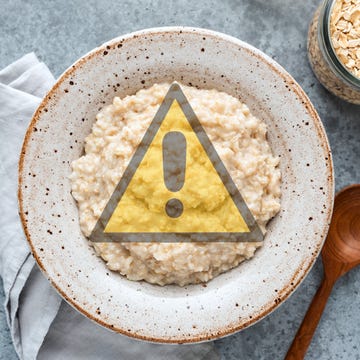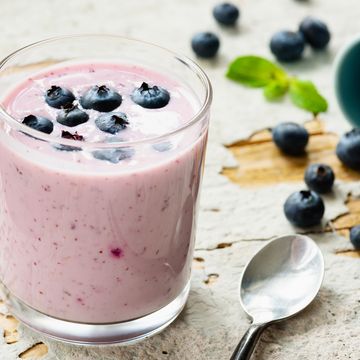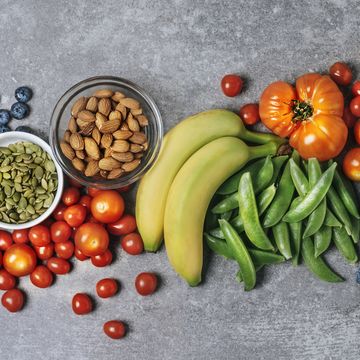Losing weight isn't easy, but the tumbling numbers on the scales help you stay motivated. The real work begins when you hit your target weight and return to real life, with treats in the corner shop, dinners with friends, and a 6pm glass or two of wine. In fact, a new analysis by the University of Oxford has found that patients typically lose 8kg on weight loss jabs but return to their original weight within 10 months of stopping them.
‘One of the ways weight-loss drugs work is to reduce your appetite and cut down this food noise,’ Dr Jack Mosley, son of the much-loved Michael Mosley and author of new book Food Noise, told Good Housekeeping. ‘The way I like to think of them is as soundproof ear defenders. When you’ve taken the drugs, you have your soundproof ear defenders on, so you can go about your life and are mostly able to avoid temptations. But weight-loss drugs are a tool, like anything else. When you take off those ear defenders – when you stop taking the medication – that food noise can return with a vengeance. Your appetite comes rushing back.’
It’s not just using weightloss injections that leaves you at risk of weight regain - a large-scale analysis of 29 long-term studies showed that more than half of the lost weight will return within two years and by five years you can expect more than 80 percent of weight to reappear.
The issue of weight maintenance is an area of fascination for Dr Claire Madigan, a senior lecturer in the School of Sport, Exercise and Health Sciences at Loughborough University. She’s working with colleagues in Newcastle and Oxford to conduct research into the kind of post-diet weight maintenance support that big diet plans offer, and the degree to which this helps protect against all the lost weight piling back on again.
According to Dr Madigan, a study by researchers at Stanford University shows that teaching people ‘stability skills’ before they set about return to real life, with muffins on sale with every takeaway coffee and a husband begging you to join him in his evening wine habit, can boost chances of long-term success. She also points out that a diet plan that teaches you the principles of healthy eating and provides post-diet support is likely to better equip you with the knowledge and awareness you might need to protect you from slipping back into the habits that caused you to gain weight in the first place. Here's what you need to know...
Get used to smaller portions
Most people reach the end of the diet, breathe a big sigh of relief, and order the large pizza they’d been dreaming about for months.
But if you’ve successfully lost 20 percent of your body weight, the portion of spaghetti bolognaise you serve yourself will have to shrink by at least 20 percent to keep in line with your body’s new fuel requirements.
According to the science, as you get smaller and slimmer your energy expenditure decreases at a rate of about 8 kcal/day per pound of weight lost. Nutrition experts at the University of Colorado have calculated that a weight loss of two and a half stones (40 lb) creates an energy gap of approximately 320 kcal/day. This means to maintain that weight loss you need to eat 320 kcal/day less than you did before you lost weight - indefinitely.
Get exercising
A large-scale 2022 review of 52 studies from the USA, Portugal, Germany, Finland and Greece found increased physical activity to have the strongest link with successful weight loss maintenance. Research suggests you should try to get at least 250 minutes of exercise each week to maintain weight loss and a study published last year found that those more likely to stick at exercise were those who ‘found it enjoyable, prioritised it, and integrated it into their daily routine’.
Eat real food
A 2022 international review of studies found the most frequently reported weight maintenance strategies were having healthy foods available at home, eating breakfast, increasing vegetable consumption, decreasing sugary and fatty foods, limiting certain foods, and reducing fat in meals.
'One of the challenges with coming off the drugs is that not only does your hunger come back, but you also have the return of food noise,' Dr Jack Mosley says. 'That’s why, to gain the most you can out of the weight-loss medications, you can’t just stick a needle in your tummy and hope for the best. Dietary and lifestyle support is crucial.'
He recommends a Mediterranean-style diet for weight maintenance. 'This is one of the best researched dietary patterns in the world, providing healthy fats, such as olive oil and oily fish, wholegrains, legumes and plenty of fruit and vegetables, plus a little bit of dairy and some meat. You can also follow it if you’re a vegetarian or vegan.'
Weigh yourself regularly
Studies show that jumping on the scales on a regular basis does help keep you on track, and daily weighing appears to be most effective. Why? If you closely monitor your weight you can quickly identify slip-ups and make small changes to get back on track.
Prioritise good sleep
Good sleep is crucial for successful weight maintenance. A study published in 2023 by researchers in Denmark (in the volume Sleep) found short sleep duration or poor sleep quality to be associated with weight regain after weight loss. That is likely to be because losing sleep causes levels of cortisol, the stress hormone, to rise, triggering a release of glucose into the blood which drives cravings (studies show sleep-deprived people consume, on average, an extra 385kcal a day).













